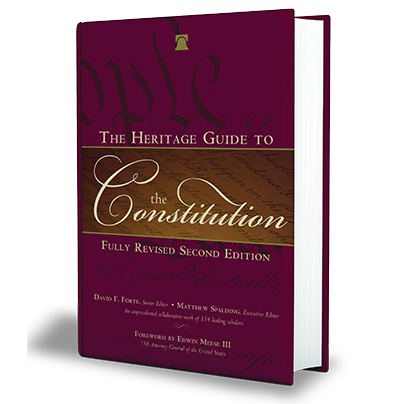What do we do when courts discriminate?
Sadly, that’s the conundrum Michigan citizens face today with the Michigan Supreme Court’s creation of its controversial Commission on Diversity, Equity, and Inclusion.
Born out of an earlier committee the Michigan Supreme Court and the State Court Administrative Office created in January 2021 in the wake of the racial unrest and riots the previous summer, this Commission has adopted Orwellian language, as one current Michigan Supreme Court Justice described it, to push a nominally ambiguous, but actually quite radical agenda.
A closer looks at the Commission’s Strategic Plan makes this clear. It focuses heavily on making sure to “include individuals with a variety of lived experiences in judicial systems,” on creating a “judicial workforce that reflects the communities served, and on making “[p]athways to judgeship and judge leadership” more “inclusive, varied, and transparent—resulting in judicial leadership at all levels that reflect those served by the courts.”
While these aspirations might sound good, it inherently means treating people differently—favoring some and disfavoring others—based on their race or other immutable characteristics. That’s never acceptable—and it’s unconstitutional.
>>> Taxpayers Shouldn’t Be Funding the State Department’s DEI Pseudoscience
Yet Michigan’s highest court is explicitly, and sometimes tacitly, endorsing these policies with only Justice David Viviano repeatedly raising concerns about these practices. He questioned why the “Court has not defined the key terms ‘diversity,’ ‘equity,’ and ‘inclusion.’” And he surmised that while some might benignly interpret those words, others surely would interpret them to mean “that inveterate prejudice runs through society and that reeducation is necessary to extirpate hidden but omnipresent bias” and that the court’s DEI Commission appears to have taken this “narrow and divisive” view.
More troublingly, he pointed out that the court, following this DEI logic, has created “an ideological purity test for chief judge appointments.” Justice Viviano described changes to the application and accompanying questionnaire like this:
The questionnaire now requests information related to the candidate’s experience and training in DEI [i.e., diversity, equity, and inclusion] and includes DEI competency to be evaluated as part of the selection criteria” . . . The questionnaire that was used in this past year’s chief judge application process now deems as a core competency the “Commitment to Diversity, Equity, and Inclusion.” Two of the 10 questions now involve “diversity, equity, and inclusion,” including one that asks the applicant to describe how he or she has “demonstrate[d] alignment with the judiciary’s commitment to diversity, equity, and inclusion[.]
Given that another major push of the DEI Commission is judicial accountability, Viviano asks whether the “ominous assertion” that judges will be “fairly held accountable for their responsibility and actions,” in fact means that the “judges will now be ‘held accountable’ if their political views differ from [those of] the members” of the Michigan Supreme Court or whether “they will be subject to discipline if they adhere to their oaths of office and promote equality of opportunity instead of equal outcomes.”
While we might hope not, what other conclusions can be drawn?
It’s difficult—if not impossible—to square these policies and programs with the Constitution’s equal protection guarantees. As the U.S. Supreme Court recently made clear in the Students for Fair Admissions cases overturning the race-based admissions practices at Harvard and UNC, a “core purpose” of the Equal Protection Clause is to do “away with all governmentally imposed discrimination based on race.” And “[e]liminating racial discrimination means eliminating all of it.”
As Justice Clarence Thomas has explained, this must be so because the “Constitution abhors classifications based on race, not only because those classifications can harm favored races or are based on illegitimate motives, but also because every time the government places citizens on racial registers and makes race relevant to the provision of burdens and benefits, it demeans us all.”
Yet the Michigan Supreme Court has chosen to demean the citizens who may come before it, and other Michigan courts, seeking equal treatment—and equal justice—under the law.
>>> DEI: A State Legislation Tracker
But sadly, the Michigan Supreme Court isn’t alone in adopting these problematic polices. Many other states have done so too, as has the federal judiciary. Only the Florida Supreme Court has taken a firm stand against these types of divisive and constitutionally problematic policies.
So back to the original question: What do we do when courts discriminate?
Judges—like all officials—must be held accountable when they violate their oaths of office. In states—like Michigan—that elect, and re-elect their Justices, voters should decide whether these Justices should remain in office. In these and other states too, the legislature might consider impeachment proceedings if the conduct proves to be egregious enough or, at a minimum, should consider slashing the budgets for any of these proposed programs.
A colorblind Constitution is a bedrock foundation of our country. It’s bad enough when any elected official seeks to undermine that principle and discriminate based on race, but it’s inexcusable and intolerable when judges—those steeped in the responsibility of upholding the Constitution’s commands—do so, especially when they know better.
This piece originally appeared in The Detroit News





